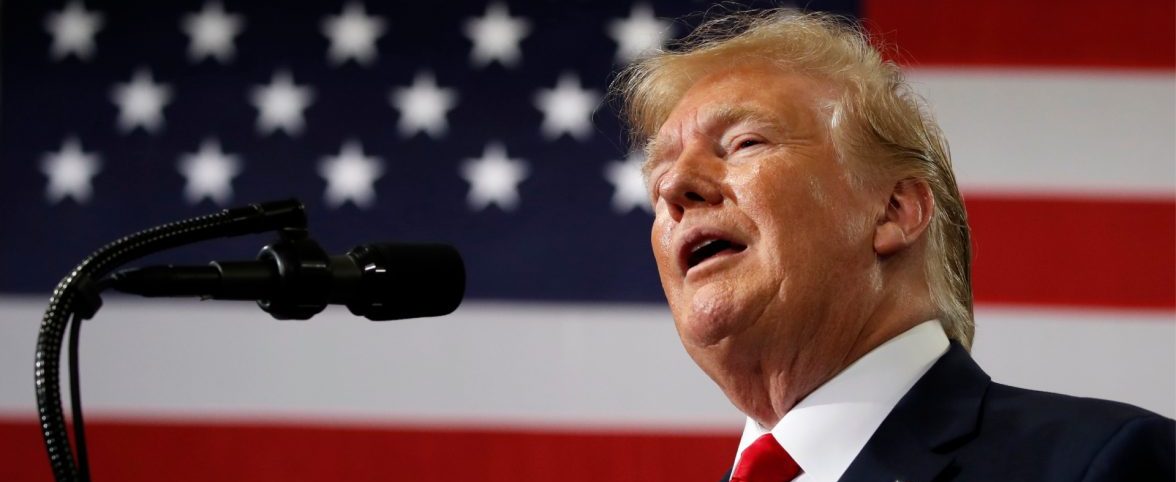In his seven hours of testimony before the House Judiciary Committee, former Special Counsel Robert Mueller did not accuse President Donald Trump of committing obstruction of justice, but nor did he exonerate him.
This ambiguous formula is working in Trump’s favor and enables him to say that he is not guilty of collusion with Russia, the main charge leveled at him. “Russian collusion” was what the Mueller investigation was all about in the eyes of the US public, but it failed to unearth anything of substance despite maintaining an atmosphere of constant suspense in the US media. Now Trump can celebrate a victory while the Democrats, who were betting that Mueller’s findings would provide justification to launch impeachment proceedings against Trump, are left with nothing and have to find new ways to delegitimize the president.
Now that the main charge of conspiracy with Moscow has been debunked, the few Russia supporters left in the US, who had feared a new low in relations after the Mueller report was released, can now breathe a sigh of relief. The first timid suggestions that continuing to sanction Russia would be pointless have appeared in the US press. The argument is that restrictions on deals with Russian public debt and on US corporate investment in Russian shares are perverse and bar US investors from one of the most promising emerging markets. Although geopolitical risk estimates are always of importance in forecasts for Russian-US relations, at this moment there is no reason to believe that the risks, which include escalations in Ukraine, Syria or Iran, are prohibitively high. And the main irritant in Russian-American relations, the “collusion” story, has been put to rest.
But the president’s detractors will not let it die. Faced with the lack of enthusiasm in Congress for new Russia sanctions legislation following the inconclusive end of the Mueller investigation, Sen. Marco Rubio and Sen. Chris Van Hollen have fought for sanctions amendments to the US defense spending bill, essentially equating sanctions with military operations. There was little doubt that this was so before and none now.
Is it safe to assume, now that the Mueller investigation is finally over, that Trump can start engaging Russia in dialogue? Of course not. Although Mueller has exonerated him on the collusion count, no one in the United States doubts that Moscow did attempt to influence the election, and so the prospects of establishing solid and constructive relations between the two nations are extremely dim. It is the Trump administration that imposed the toughest sanctions on Russia, supplied arms to Ukraine, and threatened to use force against North Korea and Iran. According to Russian Foreign Minister Sergey Lavrov, there is no reason to expect bilateral relations to normalize in the short term. Generally, Trump is more interested in freeing his country from what he sees as the shackles of treaties with Russia rather than improving relations. I am primarily referring to the INF Treaty but soon the New START Treaty may also come under threat.
All of this is creating a nervous background to bilateral relations. One gets the impression that Moscow has lost any hope that relations with the United States can become predictable again. At the same time, a number of Trump’s influential Democratic opponents will cast every step he makes towards Russia as a concession, whether true or not. As he gears up for his next presidential run, Trump will apparently run on Keeping America Great and is unlikely to evince any concern for Russia’s strategic stability and security interests.
Finally, it cannot be denied that, despite an avalanche of criticism and systematic leaks from the Mueller investigation, Trump has survived the toxic political environment at home and has forged a reputation for himself as an implacable and hard-hitting politician who set the stage for economic growth. If until recently, his legitimacy and his right to occupy the White House were challenged, the Mueller report has dispelled any suspicion that he was helped along by a foreign power. Even though Trump was not fully exonerated, he has become “normalized” in US politics as an extraordinary, outrageous but distinctly American phenomenon, bolstering his chances of being returned to the White House in the next presidential election.
Original publication valdaiclub.com












